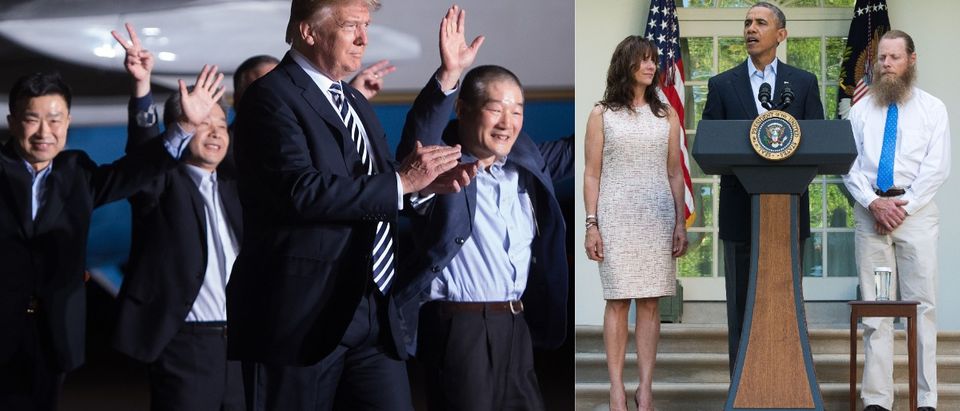Three Americans held hostage in North Korean prisons have returned home after intense pressure and strategic diplomacy by the Trump administration.
The move is a sweeping win for the muscular foreign policy prescriptions of the Trump administration.
The hostages spent at least a year in captivity in North Korea but were released without preconditions in the lead-up to a historic summit between President Trump and Kim Jong-un in Singapore on June 12.
The good-faith release of the American citizens by a hostile world power marked a stark pivot from the diplomatic wanderings of Trump’s predecessor.
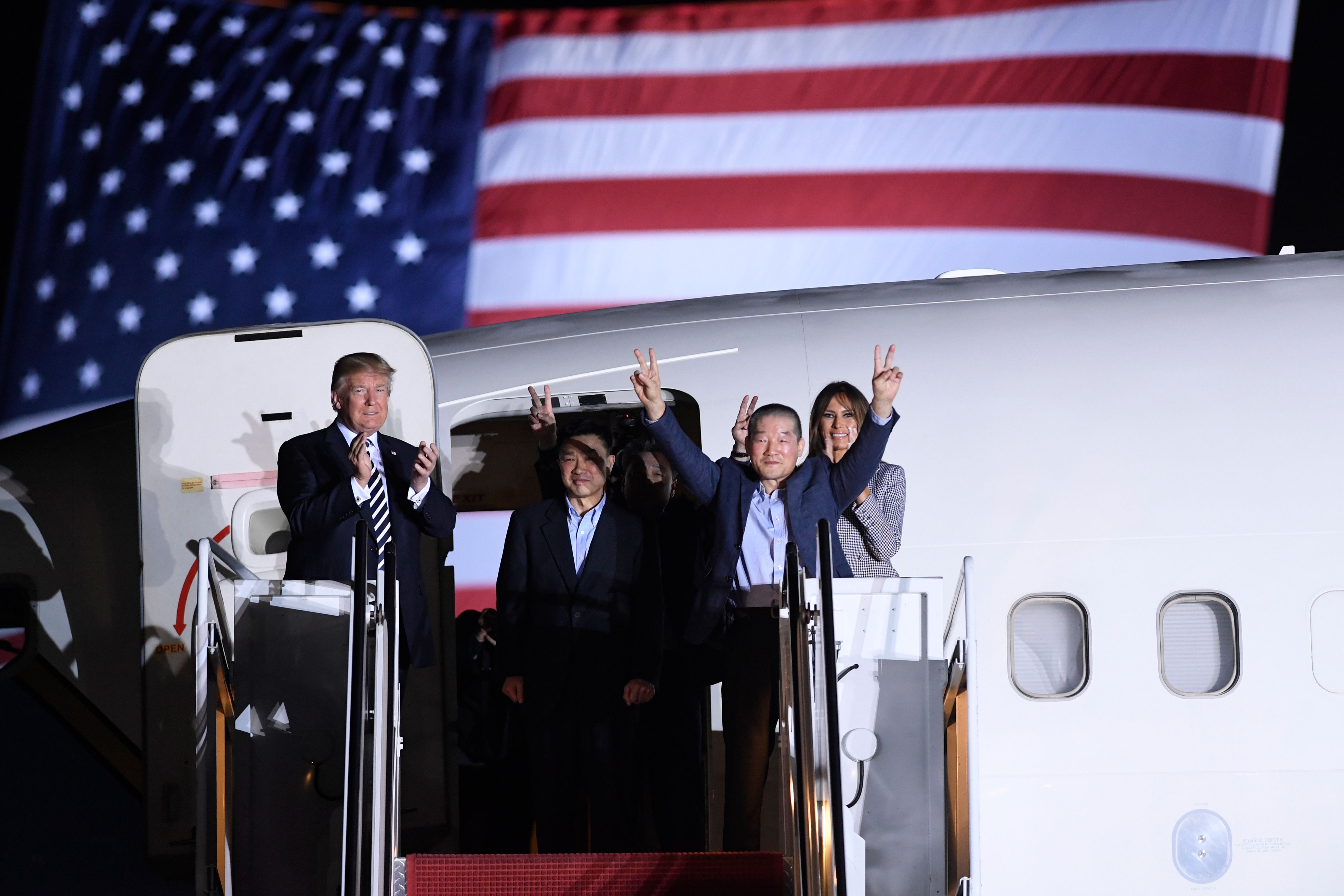
SAUL LOEB/AFP/Getty Images
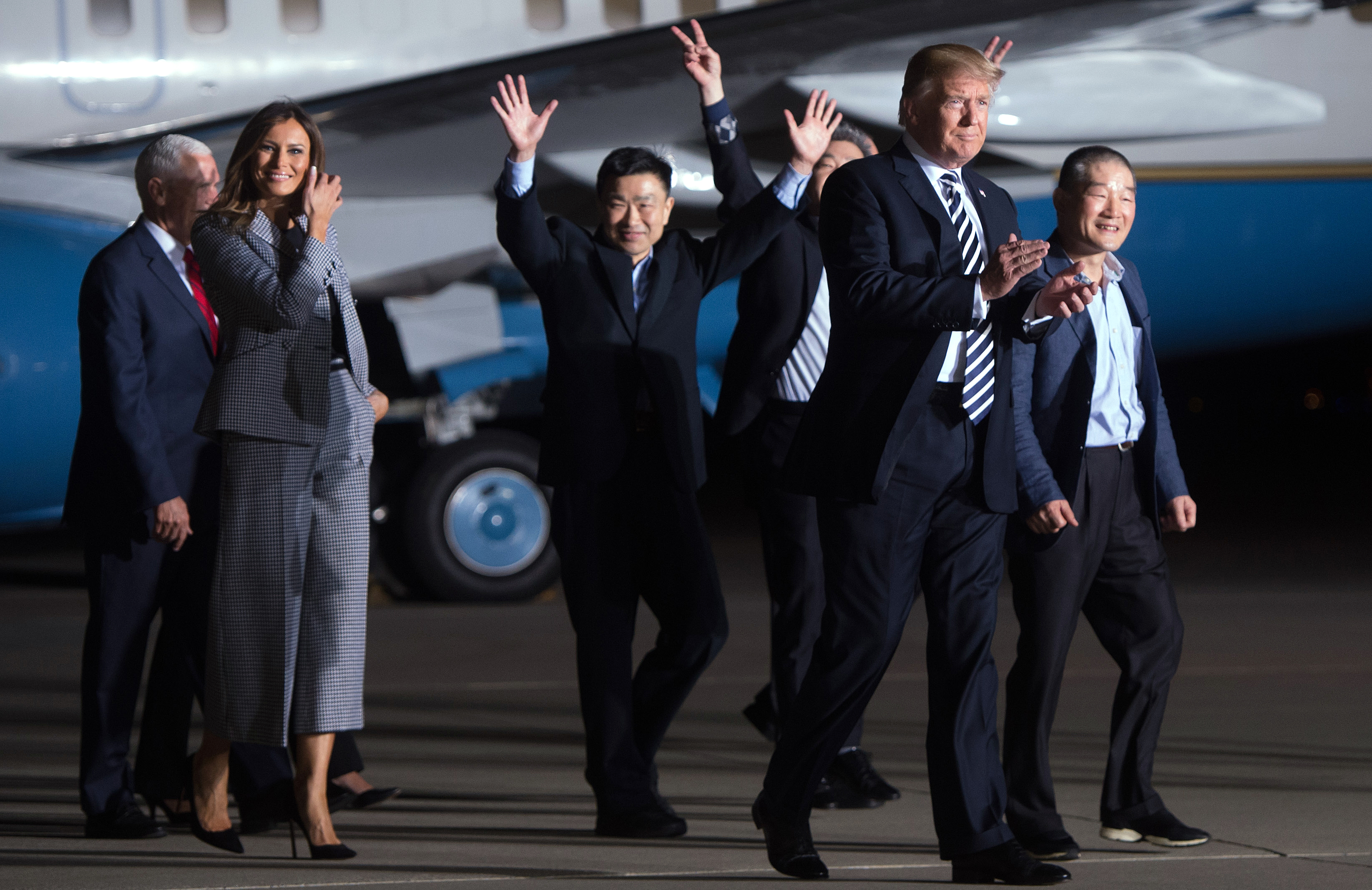
SAUL LOEB/AFP/Getty Images
It has long been U.S. policy to not negotiate with terrorists or put a price on the heads of Americans held by hostile foreign powers. Obama, however, flouted this norm, opting on multiple occasions to make preconditions and payments to foreign actors in exchange for American lives.
One of the most well-known instances was Sgt. Bowe Bergdhal.
Bergdahl deserted his Army post in Afghanistan in 2009. He was captured by the Taliban and held hostage for nearly five years. Multiple American servicemen searching for him. Ultimately, the Obama administration agreed to trade five high-value Taliban lieutenants, currently imprisoned at Guantanamo, for Bergdahl. The controversial swap took place and Bergdahl returned home to an immediate court marshal.
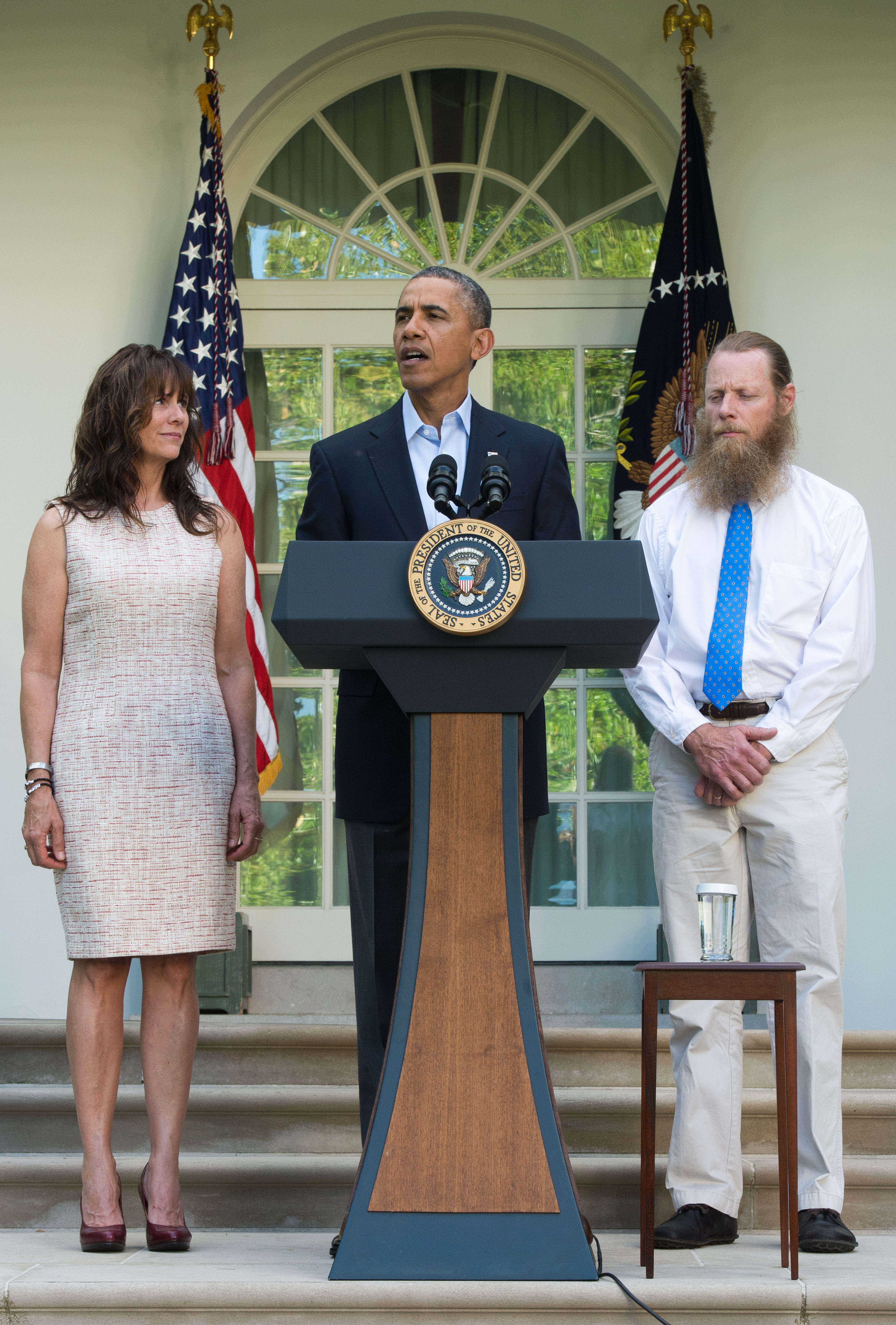
President Barack Obama makes a statement about the release of Sgt. Bowe Bergdahl as his parents, Jani Bergdahl and Bob Bergdahl listen May 31, 2014 in the Rose Garden at the White House in Washington, D.C. (Photo by J.H. Owen-Pool/Getty Images)
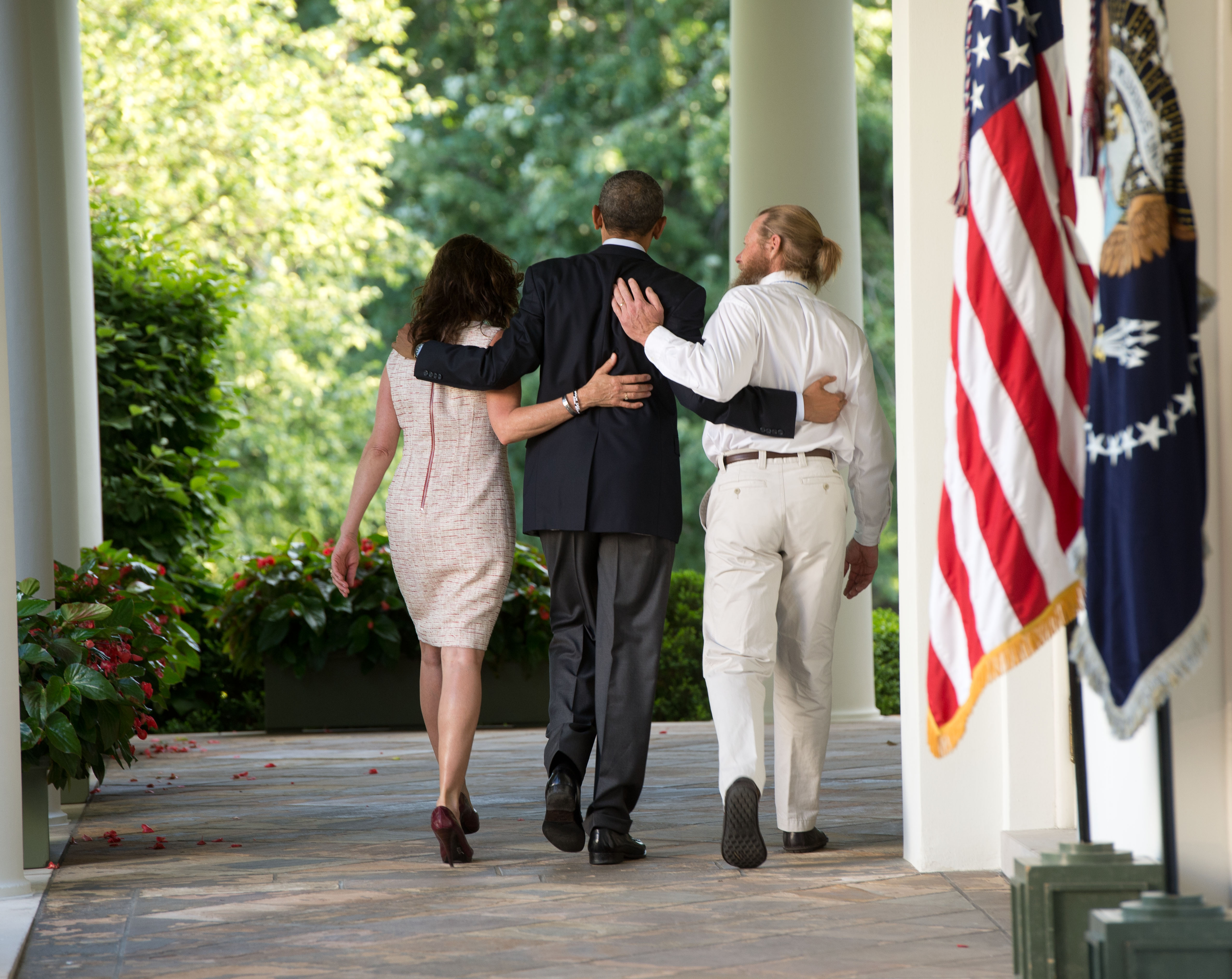
J.H. Owen-Pool/Getty Images
He was ultimately dishonorably discharged and fined for desertion and misbehavior before the enemy. He could have faced the death penalty. President Trump called the decision a “complete and total disgrace to our Country and to our Military.”
The Obama administration also secretly airlifted $400 million in cash on wooden pallets in the back of an unmarked cargo plane to Iran 2016.
The release of four jailed Americans in Tehran coincided with the payment. The Wall Street Journal reported at the time that the massive payment was a used as leverage for the release of the hostages, according to multiple government officials.
The Daily Caller reported at the time:
“The mechanics of the exchange all but confirm accusations that the $400 million in cash was a ransom payment. Saeed Abedini, a former Iranian hostage told The Wall Street Journal, Iranian intelligence officials told him his plane could not take off until the movements of a second plane were confirmed. The second plane is like the U.S. cargo plane carrying $400 million in cash.
Iranian Revolutionary Guard Corps General Reza Naghdi further confirmed the ransom story in January, telling Iranian state media “Taking this much money back was in return for the release of the American spies.”
It also came on the heels of the approval of the Iran nuclear deal. Congressional Republicans railed against the payments at the time. Senator Marco Rubio said at the time, “The U.S. government should not be in the business of negotiating with terrorists and paying ransom money in exchange for the release of American hostages.”
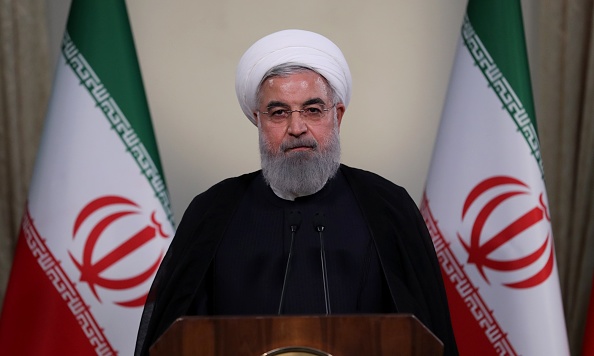
Photo by Iranian Presidency / Handout/Anadolu Agency/Getty Images
Tom Cotton echoed the sentiment, saying the Obama administration was paying a “ransom to the ayatollahs for U.S. hostages” and that the move “put a price on the head of Americans.”
The acts by the previous administration should surprise no one familiar with the Obama administration’s geopolitical worldview.
President Obama openly embraced a “lead from behind” approach to diplomatic relations. Obama embarked on what some called an “American Apology Tour” almost immediately upon entering office, establishing as policy that America would have a diminished presence in the world community. His administration dealt with foreign powers with an often inconsequential hand — opting for global consensus instead of direct, muscular American intervention.
The release of American hostages Kim Dong-Chul, Kim Hak-Song and Tony Kim were not part of any preconditions, treaty or multilateral deal. They were not traded like chess pieces in some 11-dimensional diplomatic calculus. Pallets of cash were not rolled off an aircraft in Pyongyang and into the hands of a murderous dictatorship in exchange for their American lives. Captured, dangerous terrorist leaders were not freed on the behalf of these American hostages.
These men were freed from a position of American strength.
The full-throated global hammering of the North Koreans by the Trump administration, mixed with the blistering American-led sanctions imposed upon them, had begun to take effect. America, it seems, as the reigning world economic and military superpower, can wield a muscular position over hostile powers without firing a shot.
The unique, strategic position of America to non-violently bend its enemies into capitulation was lost on the Obama administration.


